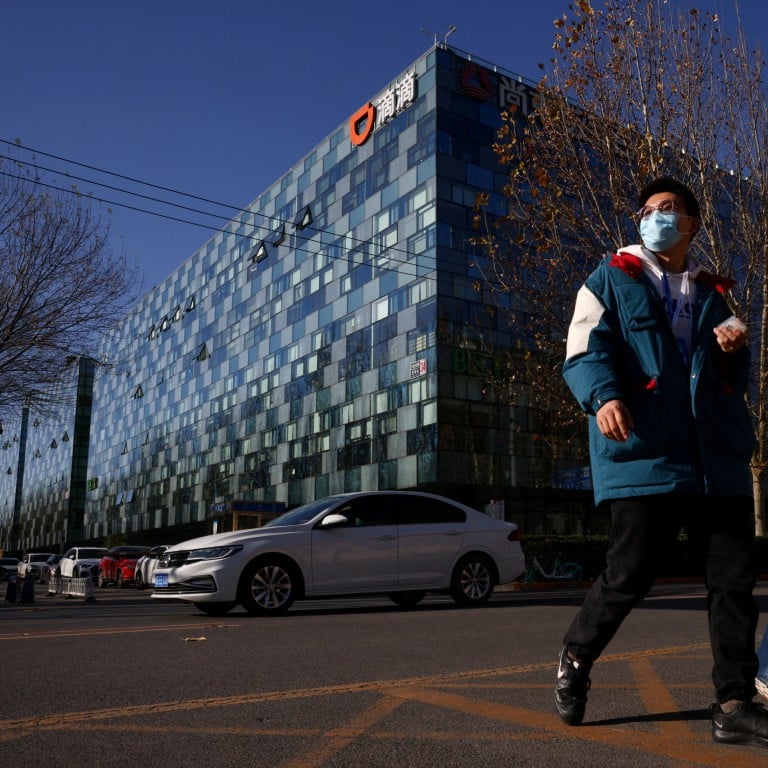
Ride-hailing giant Didi Chuxing apologises for widespread service outage in China
- Some of the issues encountered by drivers and users include failure of the app’s navigation and ride-hailing functions
- Didi, which remains the top player in China’s nearly-saturated ride-hailing market, says the problems were caused by a ‘system failure’
Chinese ride-hailing giant Didi Chuxing has reported a widespread service breakdown affecting users across major cities, including Beijing, Shanghai and Guangzhou, according to the company and its users.
The Beijing-based company apologised for the app outage late on Monday, blaming it on a “system failure” in a post published on Didi’s account on Chinese microblogging service Weibo. The statement came hours after the service disruption affected some of its 400 million users in China, as well as drivers.
Eighty per cent of Chinese users surveyed by market intelligence service Statista earlier this year said they would choose Didi over similar services from operators including Meituan and HelloGlobal. The latter is backed by Alibaba Group Holding, owner of the South China Morning Post.

Across China, there are signs that the taxi-hailing market is near saturation. Guiyang, capital of southwestern Guizhou province, recently became the latest Chinese city to stop issuing ride-hailing business permits due to an oversupply of taxi services.
Some of the issues encountered on Monday by Didi drivers and users of its ride-hailing and bike-sharing services included failure of the app’s turn-by-turn navigation, ride-hailing and journey-confirmation functions, according to local media reports and user posts on Weibo.
By Tuesday morning, Didi said it had resolved all ride-hailing-related issues and was working to completely restore its bike-sharing service.
However, some internet users still reported intermittent issues. A Weibo user who goes by the handle Jiangailiuxia18 and listed her location as southwestern Sichuan province said in a post that she had to pay her fare through Tencent Holdings’ WeChat Pay because the driver was unable to confirm the end of her ride on the Didi app.
Several users replied to that post, saying they also experienced difficulties with the Didi app in southeastern Fujian, northeastern Liaoning, central Hubei and eastern Jiangsu provinces.
Didi in September last year also drew a wave of complaints from customers unable to hail rides or pay taxi fares through the app. The company said at the time that the problems were caused by a network failure at one of its data centres, and issued an apology.

